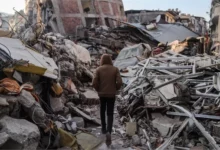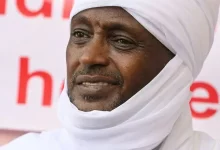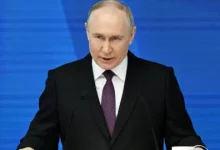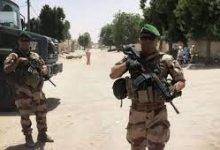For almost a decade the Libyan capital, Tripoli, has seen a kaleidoscope of conflict.
The heady days of the revolution of 2011 – which unseated long-time ruler Muammar Gaddafi – are long gone.
In the ensuing years there has been a Libya-like rendition of the TV series Game of Thrones, all about violent power struggles, involving competing militias, rival governments and, increasingly, foreign players.
In the capital these days the distant thud of battle punctuates the rumble of the traffic, but the streets are busy. This is a city fuelled by oil, coffee and resilience.
The latest round of battle began in April when a renegade commander, General Khalifa Haftar, led forces from his power base in eastern Libya to make an assault on Tripoli in the west.
He heads the self-styled Libyan National Army, and already controls most of the country. But six months on, Tripoli still eludes the mustachioed military strongman, who is backed by the Tobruk-based government. He is stuck on the southern outskirts of the city.
Gen Haftar has been held off by an array of militias – which often fight each other – now fighting under the banner of Libya’s Government of National Accord (GNA).
It is backed by the United Nations (UN), but its writ barely runs inside Tripoli, much less outside it. It is struggling to keep the lights on and the water running, even in the capital.
During a recent visit to Libya we travelled by pick-up truck through battle-scarred suburbs to reach the lines of the frontline.
There had been little movement since our last trip in April. At moments it felt like 2011 once again, with young volunteers in flip-flops risking death from the enemy – and themselves.
One fighter casually tossed his rocket-propelled grenade into the front seat of a truck – after he had tried and failed to fire it.
The commander, Salem Bin Ismail, a slight, softly-spoken figure in a camouflage T-shirt, pointed down a deserted road to Gen Haftar’s forces, just 500m (1,650ft) away.
For this veteran of the North Atlantic Treaty Organisation (NATO)-backed uprising against Gaddafi, the current conflict is about preventing a return to authoritarian rule in Libya. -BBC






